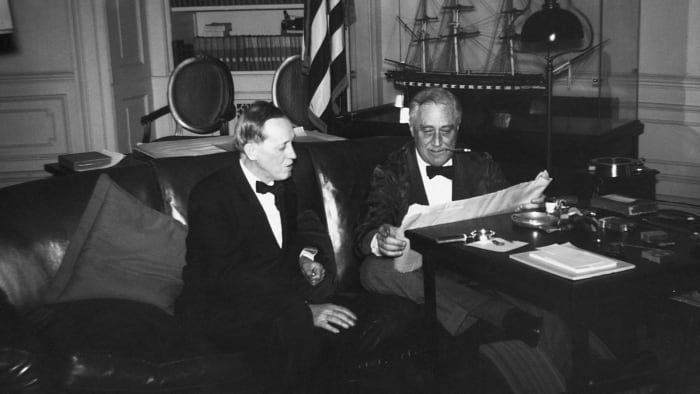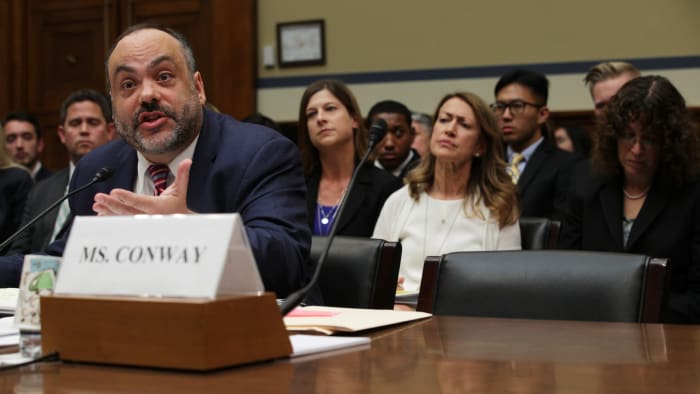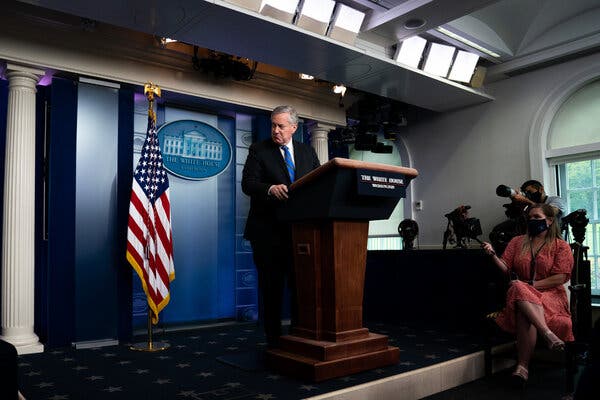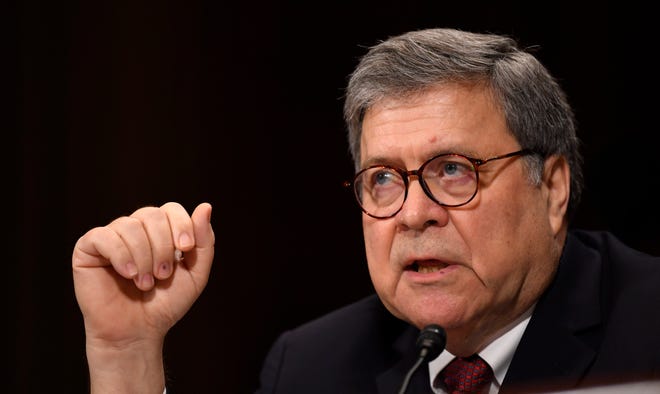The Hatch Act was signed into law in 1939 to keep federal employees from engaging in political activities while they’re on the job. It was also designed to ensure federal employees don’t face political pressures as they perform their work. While numerous federal employees have been cited with violating the act over the years, high-ranking political appointees have rarely faced any repercussions.
The act was initially passed in reaction to a scandal during the administration of Franklin D. Roosevelt. Sponsored by, and named after, New Mexico Senator Carl A. Hatch, a Democrat nicknamed “Cowboy Carl,” the legislation defines political activity as “any activity directed toward the success or failure of a political party, candidate for partisan political office, or partisan political group. Violations of the Hatch Act carry serious penalties, which may result in disciplinary action or removal from Federal employment.”
FDR Ally Promised Jobs, Promotions for Campaigning

President Franklin D. Roosevelt and Harry Hopkins, head of the Works Progress Administration, at work in the White House study.
Corbis/Getty Images
Donald Sherman, deputy director of the nonpartisan, nonprofit Citizens for Responsibility and Ethics in Washington, and former senior counsel on the Senate Homeland Security and Governmental Affairs Committee, says the Hatch Act was created following concern that FDR had pressured federal employees from the Works Progress Administration, a relief agency, into working on campaigns of candidates who were his allies or supporters.
According to Time magazine, Harry Hopkins, the director of the WPA and a Roosevelt crony, “had promised jobs and promotions within the WPA in exchange for votes in the U.S. Senate election in Kentucky. During the Great Depression, such promises would have carried great weight.”
The federal government, Sherman says, is supposed to not only represent, but also serve all Americans regardless of their party affiliation.
“The other function of the Hatch Act is preventing, say a veteran who calls the local VA about services, or someone who calls the CDC for information about COVID-19, from being asked the question, ‘Well, are you a Republican or a Democrat? Do you support, or will you support, this president?’” he says.
President and VP Exempt From Parts of Hatch Act
According to the U.S. Office of Special Counsel (OSC), which oversees violation complaints, except for the president and vice president, the Hatch Act covers all federal civilian executive branch employees, including those of the U.S. Postal Service. These employees may not use their official authority or influence to interfere with or affect election results, solicit, accept or receive donations or contributions for a partisan political party, candidate or group, run for partisan political office, engage in political activity while on duty, on federal property, while wearing a uniform or official insignia or using any federally owned or leased vehicle.
Formally named the “Act to Prevent Pernicious Political Activities,” Hatch also states that while at work, federal employees may not distribute or display campaign materials, perform campaign-related chores, wear or display partisan buttons, T-shirts or signs, make political contributions to a partisan political party, candidate or group, post comments to a blog or a social media site, or use email or social media to distribute, send, or forward content advocating for or against, a partisan political party, candidate or group.
The president and vice president are exempt from the civil provisions of the Hatch Act because those positions are both officeholders and candidates.
“You can’t really take off both hats when you run the government 24 hours a day,” Sherman explains. “You can’t tap out of being president without resigning your post. So there’s a carve-out for them for the civil provisions of the Hatch Act, which basically means they can still campaign while on the job, unlike other folks.”
However, the president and vice president are not exempt from criminal Hatch Act provisions, which prohibit intimidation, threats, commands or coercion of federal government employees to engage, or not engage, in any political activity, such as casting votes, making political contributions or working on behalf of any candidate. “Any person who violates this section shall be fined under this title or imprisoned not more than three years, or both,” the code states.
Hatch Act Amendments and Violations

Head of the Office of Special Counsel Henry Kerner testifies as the empty chair for White House counselor Kellyanne Conway is seen during a hearing before the House Oversight and Reform Committee on Capitol Hill on June 26, 2019 .The committee voted to subpoena Conway after she failed to appear at a hearing focusing on potential Hatch Act violations.
Alex Wong/Getty Images
Since its enactment, the Hatch Act has been amended a couple of times. A 1940 amendment extended the act to cover certain state and local government employees with salaries mostly paid using federal money. In 1993, under President Bill Clinton, the act was further amended to allow most federal employees to engage in voluntary, partisan political activities during their off-duty time, away from federal premises.
And, the Hatch Act Modernization Act of 2012, passed under President Barack Obama’s administration, altered the status of District of Columbia employees and made changes to enforcement, allowing more disciplinary actions.
Should the OSC find disciplinary action is warranted, it provides a complaint and statement of facts to the employee and the Merit Systems Protection Board. Current Hatch Act penalties include job removal, reduction in grade, debarment from federal employment for up to five years, suspension, reprimand or a civil fine, according to the Congressional Research Service, which adds that employees are entitled to representation and a hearing.
Much gray area, however, surrounds the actual enforcement of the Hatch Act. Generally, the independent OSC points out violations and then the Merit Systems Protection Board or even the president, doles out the discipline. While civil servants can lose their jobs if found in violation of the Hatch Act, punishment is rare for political appointees.
Recent high-profile Hatch Act violations include Health and Human Services Secretary Kathleen Sebelius, in 2012, for making a political speech during an official government event. In 2016, Housing and Urban Development Secretary Julián Castro was found in violation during a media interview for touting presidential candidate Hillary Clinton while appearing with the official HUD seal.
During the Trump administration, the OSC found at least 13 violations. Among them were six Trump officials found in violation for posting partisan tweets to their Twitter accounts in 2018, and violations by White House counselor Kellyanne Conway.
In all of those cases, no action was taken by the Obama or Trump administrations.

